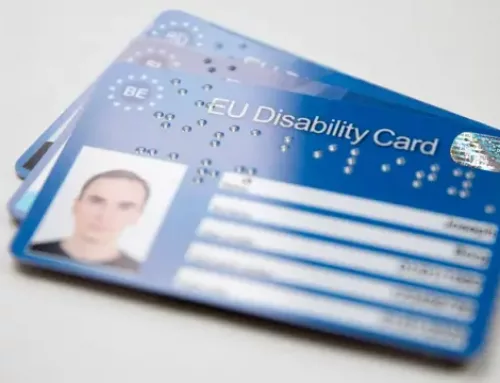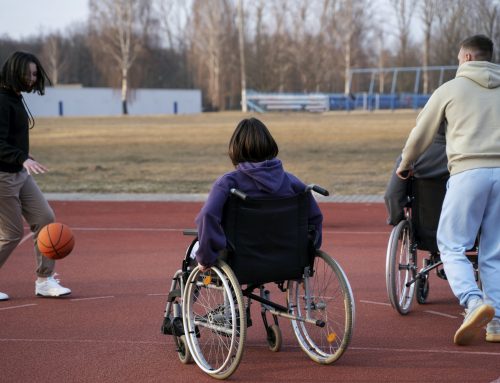Podría decirse que una de las experiencias más aterradoras de mi vida y momentos que parecieron pararse en el tiempo fue justo después de mi segunda cirugía en San Francisco en 2012.
Después de la cirugía, estaba recuperándome en la cama cuando el neurólogo vino a ver cómo estaba. Mi operación estaba en el lado izquierdo de mi cerebro y había afectado el lado derecho de mi cuerpo, incluida mi boca, de la cual aún me estoy recuperando. Mi lado derecho es menos sensible que el izquierdo y esto se aplica a sentir calor. ¡Lo noté por primera vez después de mi operación cuando me lavé las manos y sin darme cuenta de lo caliente que estaba el agua hasta que comenzó a calentarse!
El momento aterrador que mencioné fue cuando el neurólogo entró en mi sala de recuperación. Me saludó y me hizo una pregunta básica como «¿Cómo te sientes?» Quería decirle que me sentía bien, teniendo en cuenta que acababan de coser la cabeza y tenía 13 grapas de metal que mantenían las cosas juntas. Abrí la boca para hablar, pero no salió nada. Tenía las palabras en mi mente y había entendido la pregunta, pero no podía hablar. ¡Mi cuerpo se sintió repentinamente cubierto de piel de gallina y mi mundo estaba boca abajo! Lo primero que pensé fue: «¡Por favor, que esto sea temporal!». Me aterrorizó que no pudiera volver a hablar. Me volví hacia mi madre que estaba en la habitación conmigo. Mi rostro debió de haber mostrado lo que estaba pensando y sintiendo porque estuvo inmediatamente a mi lado preguntándome qué pasaba y si podía hablar.
Negué con la cabeza tratando de pronunciar las palabras. Estaban en la punta de mi lengua, pero no pude sacarlos. Casi deseaba recuperar mis ataques si podía volver a hablar. Era como si el software funcionara, pero el hardware y los músculos no respondiesen.
La terapia del habla, la motivación positiva y la voluntad de volver a ser quien era me ayudaron a volver a subir.
Esto me hizo pensar en lo difícil y estresante que debe ser desarrollar convulsiones epilépticas más adelante en la vida debido a un accidente u otra causa.
Me diagnosticaron epilepsia a los 3 años de edad, por lo que las convulsiones mientras duermo es la vida que conozco y a la que estoy acostumbrado.
Mi ex novia me contactó recientemente y me dijo que comenzó a tener convulsiones mientras dormía a los 39 años. Algunos de sus médicos dicen que tiene epilepsia. Ella está confundida y molesta. Estresada y asustada comenzó con migrañas repetitivas y luego comenzaron las convulsiones nocturnas.
Esto me recordó la importancia de la flexibilidad y la capacidad de adaptarse a cada situación. No importa cuán malas parezcan las cosas, siempre podría ser peor. Mire el lado positivo de cada situación.
Tuve una prueba de lo que puede ser una experiencia de epilepsia que cambia la vida para algunas personas. Cuando la vida gira de manera inesperada, siempre tienes más de una opción. Adáptate y aprende a moverte con el flujo natural de la vida.
«Sé agua, mi amigo».
– Bruce Lee.
Pelea por lo que quieres. Haga el esfuerzo y desarrolle su discurso nuevamente desde la casilla 1 si es necesario.
«Cuando la vida te da limones, haz limonada» ?

Arguably one of the scariest experiences of my life and moments which seemed to freeze time was right after my second surgery in San Francisco in 2012.
After my surgery I was in recovery in a bed when the neurologist came in to check on me and see how I was doing. My operation was on the left side of my brain and had affected the right side of my body including my mouth which I’m still recovering from. My right side is less sensitive than my left and this applies to feeling heat. I first noticed this after my operation when washing my hands and not realizing how hot the water was until it started to steam!
The scary moment I mentioned was when the neurologist came into my recovery room. He said hi and asked me a basic question like ‘how are you feeling?’ I wanted to tell him that I felt ok considering that they had just sewn my head back and I had 13 metal staples holding things together. I opened my mouth to speak but nothing came out. I had the words in my mind and I had understood the question but I couldn’t speak. My body felt suddenly covered in goosebumps and my world felt flipped upside down! The first thought I had was “please let this be temporary!” I felt terrified that I wouldn’t be able to speak again. I turned to my mom who was in the room with me. My face must’ve shown what I was thinking and feeling because she was immediately at my side asking me what was wrong and if I could speak. I shook my head trying to get the words out. They were on the tip of my tongue but I couldn’t get them out. I almost wished to have my seizures back if I could speak again. It was like the software was working but the hardware and muscles weren´t responding.
Speech therapy, positive motivation and the will to get back to who I was helped me climb back up.
This made me think about how difficult and stressful it must be to develop epileptic seizures later in life because of an accident or some other cause.
I was diagnosed with epilepsy at 3 years oldso seizures while I sleep is the life I know and what I’m used to.
My ex-girlfriend recently contacted me and told me that she started to have seizures in her sleep at age 39. Some of her doctors say she has epilepsy. She’s confused and upset. Stressed and afraid. It started as repetitive migraines then the nocturnal seizures started.
This reminded me of the importance of flexibility and the ability to adapt to every situation. No matter how bad things seem it could always be worse. Look at the bright side of every situation.
I had a taste of what a life-changing experience epilepsy can for some people. When life turns an unexpected way you always have more than one option. Adapt and learn to move with life’s natural flow.
“Be water my friend.”
– Bruce Lee.
Fight for what you want. Put in the effort and develop your speech again from square 1 if necessary.
“When life gives you lemons-make lemonade” ?

Teo Cochrane
Psicólogo con experiencia en la enseñanza.




















